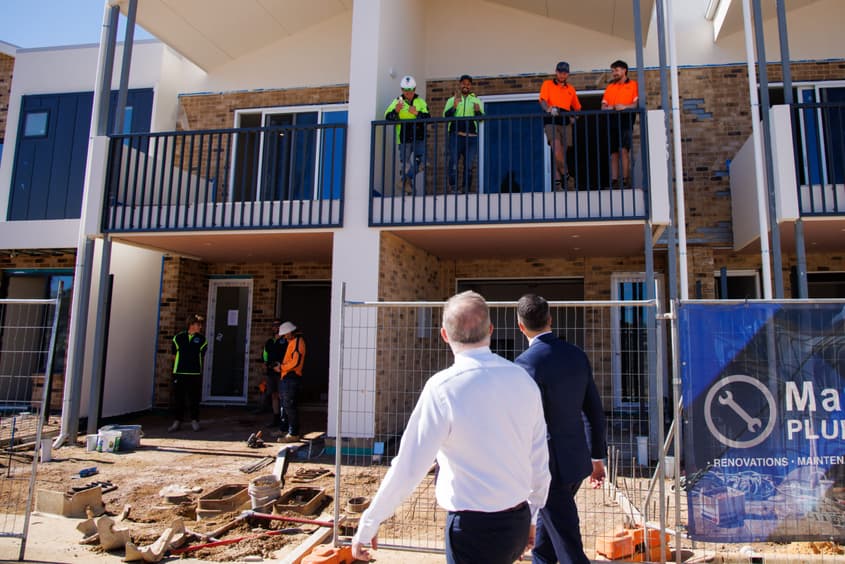Confidence in the housing market has surged to a 15 year high, amid concerns the Federal Government’s expanded first-homebuyer scheme will further fuel price growth.
Fri 10 Oct 2025 09.00

Photo: AAP Image/Matt Turner
Confidence in the housing market has surged to a 15 year high, amid concerns the Federal Government’s expanded first-homebuyer scheme will further fuel price growth.
The Westpac-Melbourne Institute Indicator for House Price Expectations has risen 12.2 per cent over the past year, showing Australians are predicting another property boom despite already sky-high prices.
“We had a huge surge during the pandemic when we had the Home Builder programs and interest rates effectively at zero,” said the Australia Institute’s chief economist Greg Jericho while discussing the issue on the Australia Institute’s Dollars & Sense podcast.
“Then there was a bit of a drop off. Now it’s picked up because we are starting to see interest rates falling.”
The Reserve Bank has boosted market activity by cutting interest rates three times this year.
However, the Federal Government’s expanded First Home Buyers scheme is also adding to the demand-driven price growth with new buyers now able to get into the market with just a 5% deposit.
Prime Minister Anthony Albanese said the scheme is meant to get “more Australians into their own home quicker, while saving them money along the way” however he’s acknowledged, “there will be a slight increase in prices,” but claims it will only be “minimal”.
Mr Jericho said the current situation mirrors the post-GFC housing boom, when low interest rates triggered sharp growth, however he said the indication is “a bit self-fulfilling”.
“People think, oh house prices are going to go up, I better get in now before they go up. So, everyone trying to avoid prices going up or getting in before prices go up, causes prices to go up.”
“So, to use a technical term,” said podcast co-host, Elinor Johnston-Leek, “we’re cooked.”
Chronic undersupply is a major issue in both new builds and rental accommodation.
In its 2025 State of the Housing System report, the National Housing and Supply Affordability Council notes that “decades of inconsistent housing policy and coordination have resulted in “the undersupply and low affordability of housing in Australia today”.
Ms Johnston-Leek said Cotality’s Quarterly Rental Review Report, released this month, “found rental vacancy rates are at a record low”.
“Median weekly rental prices across the combined capital cities have gone over $700. So, house prices going up, nothing seems to be stopping them going up. The rental market tightening. That seems kind of cooked.”
“There’s a lot of ‘cooking’ going on,” agreed Mr Jericho.
“What we’ve seen after the pandemic,” said Mr Jericho, “is rent prices really start going up and they seriously went up when the Reserve Bank started raising interest rates.
“Not because there’s any link but because people think there is a link or there should be a link. It was a nice cover.”
“There is a concern that this is going to take off.”
He said the report, “really just highlights how supply is a crucial thing, especially supply at the lower end, public housing.
“It just reiterates we’ve got to get rid of some of the demand in the system that we are creating due to the distortions of the tax system – capital gains tax, negative gearing – and at the same time, build more homes.”